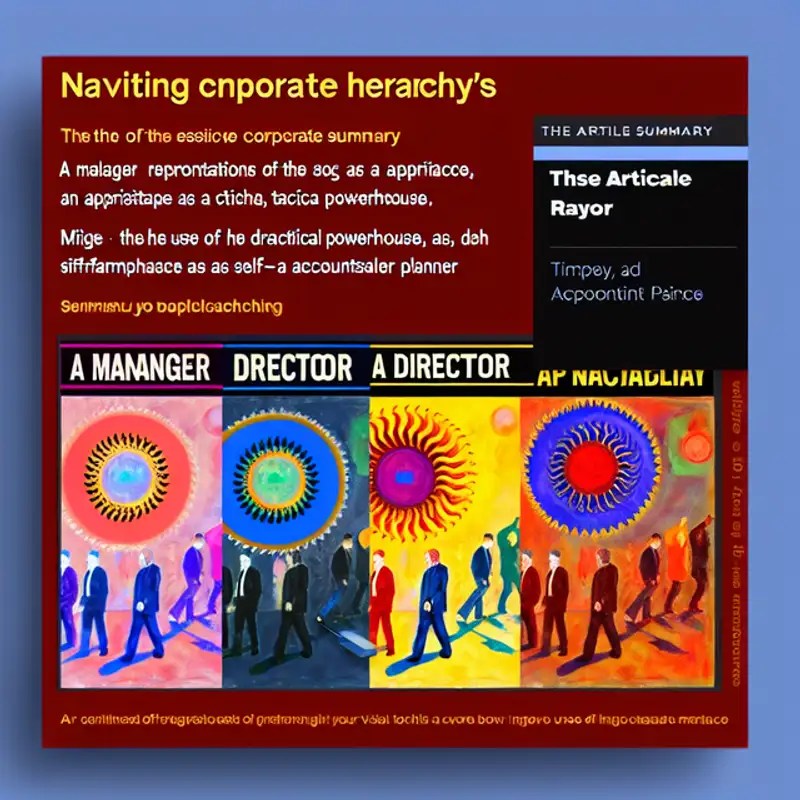 Episode
Episode
· 03:20
🎙️ Podcast Summary: What It Really Means to Be a Manager, Director, or VP
Ever wondered what separates a manager from a director — or what really makes someone a Vice President besides a better parking spot? Dave Kellogg breaks it all down in this spicy and insightful blog post, explaining why traditional corporate “leveling” systems are little more than bureaucratic fluff, and what actually matters when growing in your career. In true Kellogg style, he cuts through the HR jargon to reveal the fundamental differences in mindset and responsibility across the three roles. In short? Managers execute, directors deliver autonomously, and VPs own the plan — and the outcome, win or lose. As Dave puts it: “You are accountable for results. Make a plan that you believe in.” This isn’t just advice for rising stars — it’s a wake-up call for anyone carrying a title but not yet carrying the weight.
📌 Key Takeaways:
Traditional "leveling" systems — titles like Senior Analyst II or Director I — are often overly granular and give a false sense of progress. Kellogg calls this “fake science” that encourages climbing the ladder instead of meaningful growth.
Managers: Drive results with help. Still learning. Can execute but not typically plan projects. Think of them as apprentices to leadership.
Directors: Operate independently and execute cross-functional plans. They “get sh*t done” without needing hand-holding. A good director is a tactical execution powerhouse.
Vice Presidents: Don’t just execute the plan — they make the plan. The success or failure of that plan is on them. If it fails, they don’t get to say, “But everyone agreed to it.”
Critical insight: Many so-called VPs, especially in big companies, are actually functioning at a Director level — executing rather than owning outcomes.
A VP’s job is to think like the CEO of their function. That means building strategy, believing in it, and standing by it — win or lose. If you’re going to get fired, better it be for standing up for what’s right than for failing to deliver what you never believed in.
"You are accountable for results. Make a plan that you believe in... If you're going to die on a hill, make sure it's your own."
🎤 Soundbite to Remember:
“An executive should never sign up for a plan they don’t believe in. Risk being fired now for refusing to back a bad plan than later for failing to deliver it.”
🚀 Pro Tip:
If you're preparing to grow into a VP role — or wondering why you're not there yet — stop focusing on how many people you manage. Start owning outcomes and shaping strategy instead. Titles don’t mean much; impact does.
🔍 Verified Insight:
Dave Kellogg is a seasoned executive (former CEO of Host Analytics and SVP at Salesforce’s Service Cloud), known for his no-nonsense takes on SaaS growth and leadership — so his perspective carries real-world weight. His blog is widely respected among tech leaders and startup founders.
🎧 Tune in next time — we’ll unpack how to survive performance reviews, or maybe why we should ditch them altogether. Until then, lead smart and own your hill.
Link to Article
Listen to jawbreaker.io using one of many popular podcasting apps or directories.